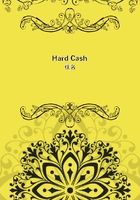
第118章
The discussion was turned into an unexpected quarter by the entrance of Jane Hardie, who came timidly in and said, "Oh, Mr. Osmond, I cannot let you go without telling you how anxious I am about Alfred. He is so thin, and pale, and depressed.""Nonsense, Jane," said Mr. Hardie; "have we not all cause to be dejected in this house?" But she persisted gently that there was more in it than that; and his headaches were worse, and she could not be easy any longer without advice.
"Ah! those headaches," said Mr. Osmond, "they always made me uneasy. To tell the truth, Miss Hardie, I have noticed a remarkable change in him, but I did not like to excite apprehensions. And so he mopes, does he?
seeks solitude, and is taciturn, and dejected?""Yes. But I do not mind that so much as his turning so pale and thin.""Oh, it is all part of one malady.""Then you know what is the matter?"
"I think I do; and yours is a wise and timely anxiety. Your brother's is a very delicate case of hyperaesthetic character; and I should like to have the advice of a profound physician. Let me see, Dr. Wycherley will be with me to-morrow: may I bring him over as a friend?"This proposal did not at all suit Mr. Hardie. He put his own construction on Alfred's pallor and dejection, and was uneasy at the idea of his being cross-questioned by a couple of doctors:
"No, no," said he; "Taff has fancies enough already. I cannot have you gentlemen coming here to fill his head with many more.""Oh, he has fancies, has he?" said Osmond keenly. "My dear sir, we shall not say one word to _him:_ that might irritate him: but I should like _you_ to hear a truly learned opinion."Jane looked so imploringly that Mr. Hardie yielded a reluctant assent, on those terms.
So the next day, by appointment, Mr. Osmond introduced his friend Dr.
Wycherley: bland and bald with a fine bead, and a face naturally intelligent, but crossed every now and then by gleams of vacancy; a man of large reading, and of tact to make it subserve his interests. Avoluminous writer on certain medical subjects, he had so saturated himself with circumlocution, that it distilled from his very tongue: he talked like an Article, a Quarterly one; and so gained two advantages:
1st, he rarely irritated a fellow-creature; for if he began a sentence hot, what with its length, and what with its windiness, he ended it cool:
item, stabs by polysyllables are pricks by sponges. 2ndly, this foible earned him the admiration of fools; and that is as invaluable as they are innumerable.
Yet was there in the mother-tongue he despised one gem of a word he vastly admired: like most Quarterly writers. That charming word, the pet of the polysyllabic, was "OF."He opened the matter in a subdued and sympathising tone well calculated to win a loving father, such as Richard Hardie--was not.
"My good friend here informs me, sir, you are so fortunate as to possess a son of distinguished abilities, and who is at present labouring under some of those precursory indications of incipient disease of the cerebro-psychical organs, of which I have been, I may say, somewhat successful in diagnosing the symptoms. Unless I have been misinformed, he has, for a considerable time, experienced persistent headache of a kephalalgic or true cerebral type, and has now advanced to the succeeding stage of taciturnity and depression, not* unaccompanied with isolation, and probably constipation: but as yet without hallucination, though possibly, and, as my experience of the great majority of these cases would induce me to say, probably he is not** undisturbed by one or more of those latent, and, at first, trifling aberrations, either of the intelligence or the senses, which in their preliminary stages escape the observation of all but the expert nosologist."*Anglice, "accompanied." **Anglice, "disturbed.""There, you see," said Osmond, "Dr. Wycherley agrees with me: yet Iassure you I have only detailed the symptoms, and not the conclusion Ihad formed from them."Jane inquired timidly what that conclusion was.
"Miss Hardie, we think it one of those obscure tendencies which are very curable if taken in time----" Dr. Wycherley ended the sentence: "But no longer remediable if the fleeting opportunity is allowed to escape, and diseased action to pass into diseased organisation."Jane looked awestruck at their solemnity; but Mr. Hardie, who was taking advice against the grain, turned satirical. "Gentleman," said he, "be pleased to begin by moderating your own obscurity; and then perhaps Ishall see better how to cure my son's disorder. What the deuce are you driving at?"The two doctors looked at one another inquiringly, and so settled how to proceed. Dr. Wycherley explained to Mr. Hardie that there was a sort of general unreasonable and superstitious feeling abroad, a kind of terror of the complaint with which his son was threatened; _"and which,_ instead of the most remediable of disorders, is looked at as the most incurable of maladies:" it was on this account he had learned to approach the subject with singular caution, and even with a timidity which was kinder in appearance than in reality; that he must admit.
"Well, you may speak out, as far as I am concerned," said Mr. Hardie, with consummate indifference.
"Oh, yes!" said Jane, in a fever of anxiety; "pray conceal nothing from us.""Well, then, sir, I have not as yet had the advantage of examining your son personally, but, from the diagnostics, I have no doubt whatever he is labouring under the first fore-shadowings of cerebro-psychical perturbation. To speak plainly, the symptoms are characteristic of the initiatory stage of the germination of a morbid state of the phenomena of intelligence.
His unprofessional hearers only stared.